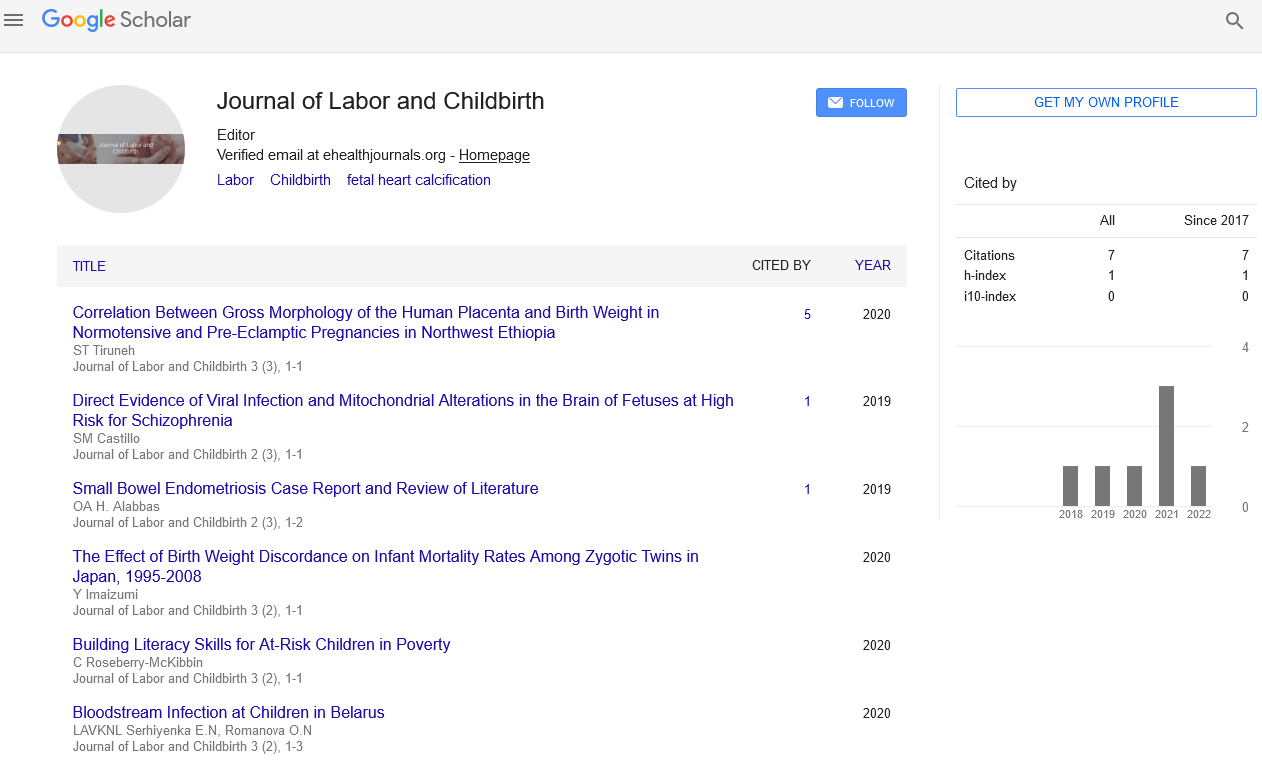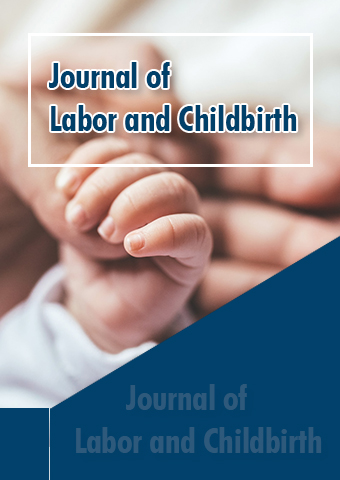Perspective - Journal of Labor and Childbirth (2024) Volume 7, Issue 1
Addressing Substance Use Disorders in Adolescents and Adults with ADHD: A Comprehensive Exploration of Treatment Approaches
- Corresponding Author:
- Manuel Menendez
Department of Neurology,
Caana University,
Cancun,
Mexico
E-mail: manuelmenen777@gmail.com
Received: 18-Jan-2024, Manuscript No. jlcb-24-125341; Editor assigned: 23-Jan-2024, PreQC No. jlcb-24-125341 (PQ); Reviewed: 06- Feb-2024, QC No. jlcb-24-125341; Revised: 15-Feb-2024, Manuscript No. jlcb-24-125341 (R); Published: 23-Feb-2024, DOI: 10.37532/ jlcb.2024.7(1).185-187
Introduction
Attention-Deficit/Hyperactivity Disorder (ADHD) is a neurodevelopmental disorder that affects individuals across the lifespan, often persisting into adolescence and adulthood. While ADHD itself poses challenges in various aspects of life, it is also associated with an increased risk of developing Substance Use Disorders (SUDs). Understanding the complex interplay between ADHD and substance use is crucial for effective treatment strategies. This article explores the relationship between ADHD and substance use, delves into the unique challenges faced by adolescents and adults with this dual diagnosis and emphasizes the importance of a comprehensive treatment approach.
Description
The connection between ADHD and substance use
Research consistently suggests a bidirectional relationship between ADHD and substance use. Individuals with ADHD are more prone to engaging in impulsive behavior, seeking novelty and experiencing difficulties in inhibitory control. These traits can contribute to a higher susceptibility to substance use as a way of coping with the challenges associated with ADHD symptoms. Conversely, substance use can exacerbate ADHD symptoms, creating a cycle of dependence that is challenging to break.
The intersection of ADHD and substance use
Research consistently indicates a higher prevalence of substance use and abuse among individuals with ADHD compared to the general population. The reasons for this correlation are multifaceted, encompassing both genetic and environmental factors. Individuals with ADHD may be more prone to impulsivity, seeking instant gratification and risk-taking behaviors. Additionally, they may use substances as a means of self-medication to alleviate the symptoms of ADHD, such as restlessness, inattention and emotional dysregulation.
Adolescents with ADHD face unique challenges, as they navigate the tumultuous years of adolescence marked by peer pressure, academic stress and identity formation. The use of substances may seem appealing as a coping mechanism, exacerbating the risks associated with ADHD. In adults, the challenges persist, with the added complexities of work, relationships and societal expectations, contributing to an increased vulnerability to substance misuse.
Adolescents with ADHD and substance use
Adolescence is a critical period for both ADHD symptom manifestation and the initiation of substance use. The unique challenges faced by adolescents with ADHD often include academic difficulties, impaired social relationships and struggles with selfesteem. The desire to fit in and cope with these challenges may drive some adolescents with ADHD toward experimentation with substances as a form of self-medication.
Prevention strategies for adolescents
Preventive efforts are crucial to address the heightened risk of substance use in adolescents with ADHD. Comprehensive school-based programs that focus on enhancing executive functions, social skills and coping mechanisms can play a pivotal role. Additionally, targeted interventions involving parents and educators can provide the necessary support to help adolescents with ADHD navigate the challenges of adolescence without resorting to substance use.
Treatment approaches for adolescents
When addressing substance use disorders in adolescents with ADHD, a multimodal treatment approach is essential. Behavioral therapies, such as Cognitive-Behavioral Therapy (CBT) and Motivational Enhancement Therapy (MET), have shown efficacy in reducing substance use and improving ADHD symptoms. Medication management, including stimulant medications commonly used to treat ADHD, may also be a part of the comprehensive treatment plan, tailored to the individual needs of the adolescent.
Challenges in treating adults with ADHD and substance use
As individuals transition into adulthood, the challenges associated with ADHD often persist and the consequences of long-term substance use become more profound. Adults with ADHD and substance use disorders may face difficulties in maintaining employment, relationships and overall life stability. Additionally, the presence of comorbid mental health conditions, such as depression and anxiety, further complicates the treatment landscape.
Integrated treatment approaches for adults
Treating adults with ADHD and substance use disorders requires an integrated and collaborative approach. Mental health professionals, addiction specialists and primary care providers should work together to address both the ADHD symptoms and the substance use. Integrated interventions may include psychotherapy, support groups, vocational training and pharmacotherapy.
Cognitive-behavioral therapy for adults
Cognitive-Behavioral Therapy (CBT) has demonstrated effectiveness in treating both ADHD and substance use disorders in adults. CBT helps individuals identify and modify dysfunctional thought patterns, develop coping strategies and build skills to manage impulsivity. In the context of dual diagnosis, CBT can be tailored to address the specific challenges faced by individuals with ADHD, such as time management, organizational skills and emotional regulation.
Pharmacotherapy for dual diagnosis
Medication management plays a critical role in treating adults with ADHD and substance use disorders. While stimulant medications like methylphenidate and amphetamines are commonly prescribed for ADHD, concerns about their potential for abuse must be carefully considered. Non-stimulant medications, such as atomoxetine, bupropion or guanfacine, may be preferred in individuals with a history of substance use.
Holistic approaches to treatment
A holistic approach that encompasses lifestyle modifications, stress management techniques and mindfulness practices can significantly enhance the efficacy of treatment for adults with ADHD and substance use disorders. Addressing underlying issues related to selfesteem, trauma and emotional regulation is essential for sustainable recovery.
The role of family and social support
Family and social support are integral components of the treatment process for individuals with dual diagnosis. Involving family members in therapy, providing education on ADHD and substance use and fostering a supportive environment can contribute to the individual’s overall well-being. Peer support groups also offer a sense of community and understanding that can be particularly beneficial.
Conclusion
Substance use disorders in individuals with ADHD pose unique challenges that require a comprehensive and integrated treatment approach. Understanding the bidirectional relationship between ADHD and substance use, addressing prevention strategies for adolescents and implementing multimodal interventions for adults are crucial steps toward effective treatment. By combining evidencebased therapies, pharmacological interventions and holistic approaches, we can better support individuals with ADHD and substance use disorders on their journey toward recovery. Additionally, raising awareness, reducing stigma and promoting early intervention are essential for improving outcomes and quality of life for those affected by this dual diagnosis.

